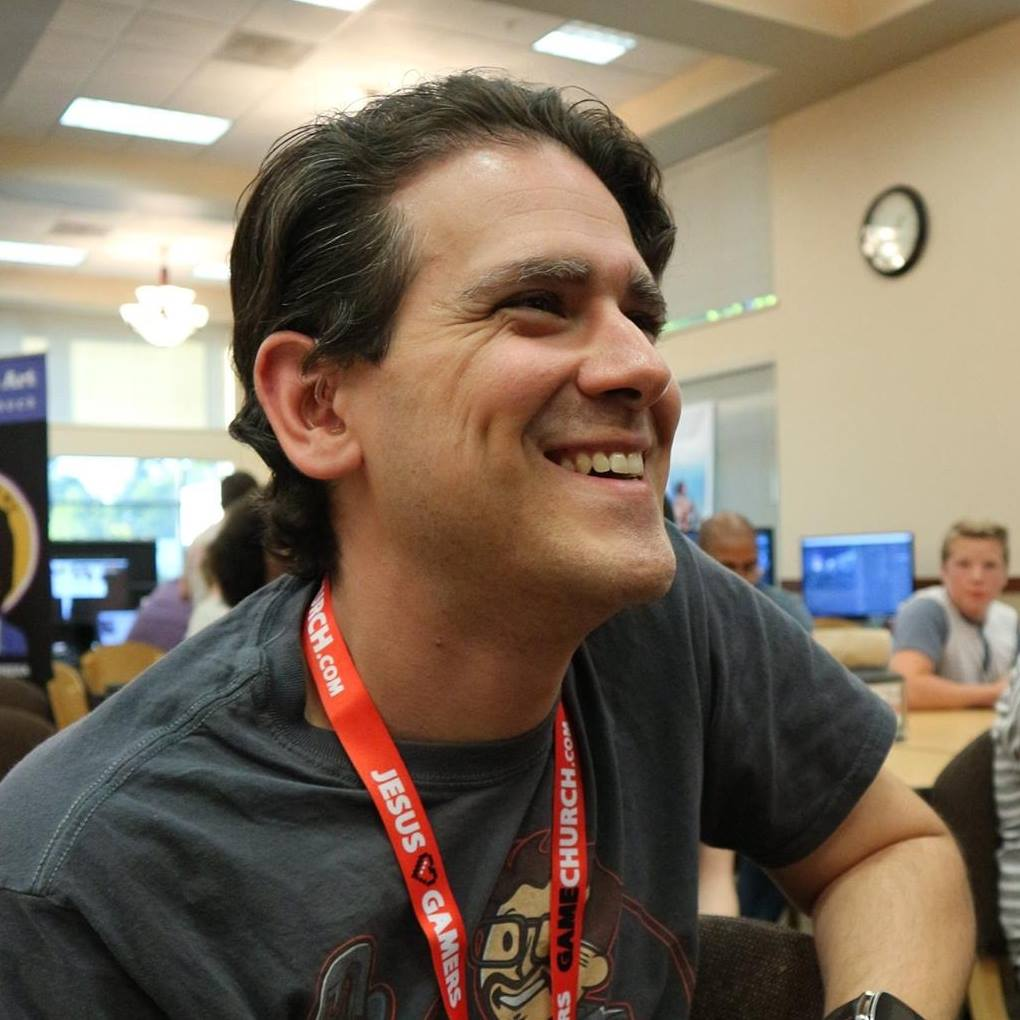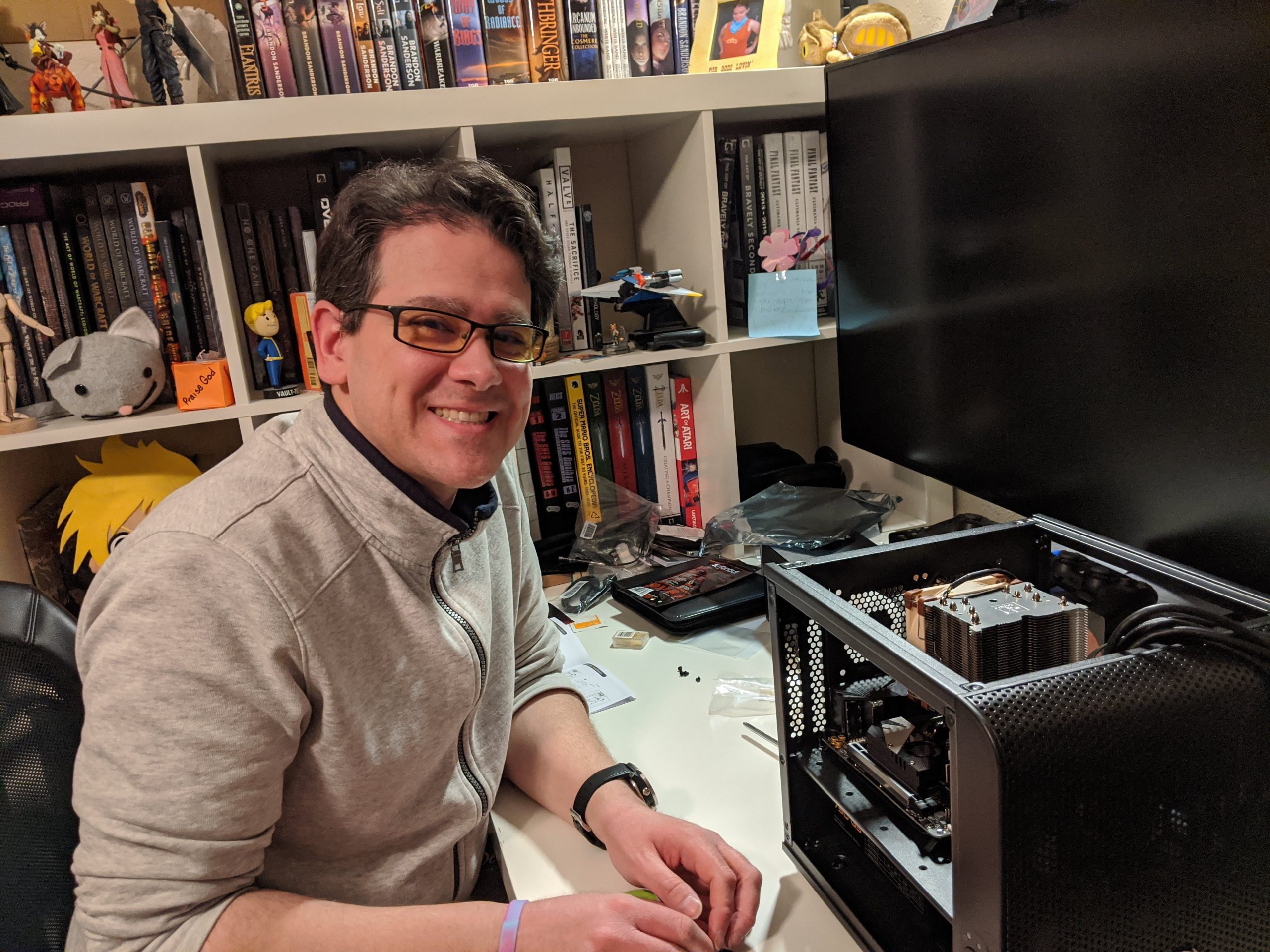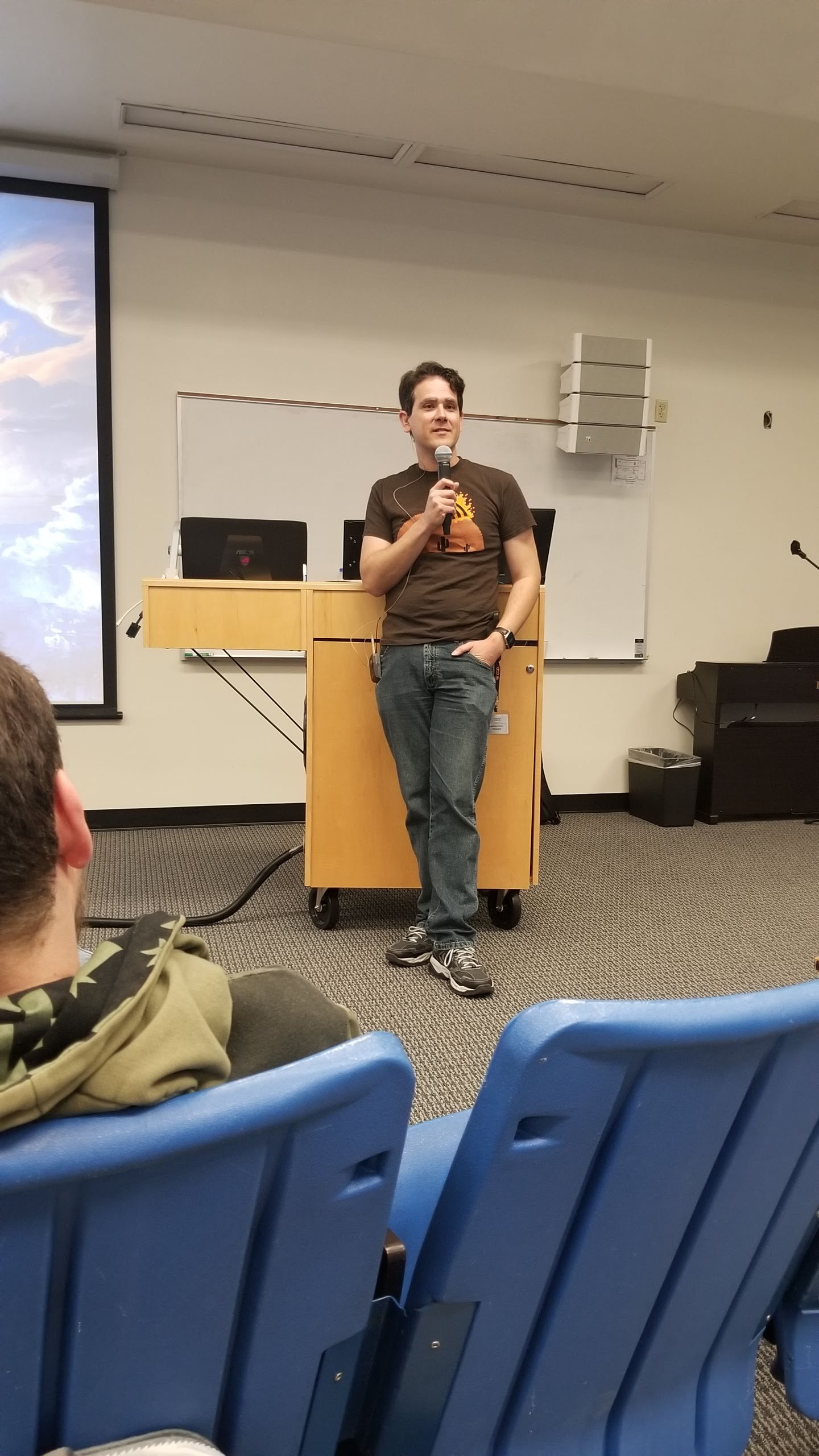Can you tell me a little about yourself?
My name is Matt Colón, and I am an engineering manager at Adobe in the California Bay Area. I’ve been married for almost 14 years to my wonderful wife, Katie, and am a proud dad of our three kids. Since I was young I have enjoyed artwork, starting with drawing something that vaguely looks like Mario as a pre-schooler and later illustrating four web comics in college and beyond. Music also was a core part of me growing up, playing violin starting at age 6 and adding piano and guitar later in life.
I had wanted to be a game developer even at an early age, so when I attended Cal Poly, San Luis Obispo for college, I enrolled in any class that could apply to game development, such as courses on computer graphics and artificial intelligence. It was there at college that I felt a calling from God towards game development. All was well until we had game developers from the AAA industry come to talk about their experiences, at which point I learned about the horrible impact of crunch on the lives of developers and their families. This derailed my desire to join the AAA industry out of college, and it wasn’t until Minecraft came along years later that I realized the viability of individuals or small teams releasing games digitally that I realized my calling could be fulfilled in the indie game industry instead.
Share your experiences volunteering with Games For Love.
It’s been a pleasure working with a small team on a VR arcade channel for the upcoming Channel Surfing+ game where each of us have our own strengths to bring. I have a background in 2D game development, so I thought at first I would be of little help for a VR game in 3D space, but the VR arcade was a perfect fit where I could create new 2D games for the arcade machines that the player can engage with using VR controls. It’s encouraging to watch the progress being made on all fronts in this channel and in the full team as well, and it gives me good motivation to bring some new things to show off for each team meeting.








